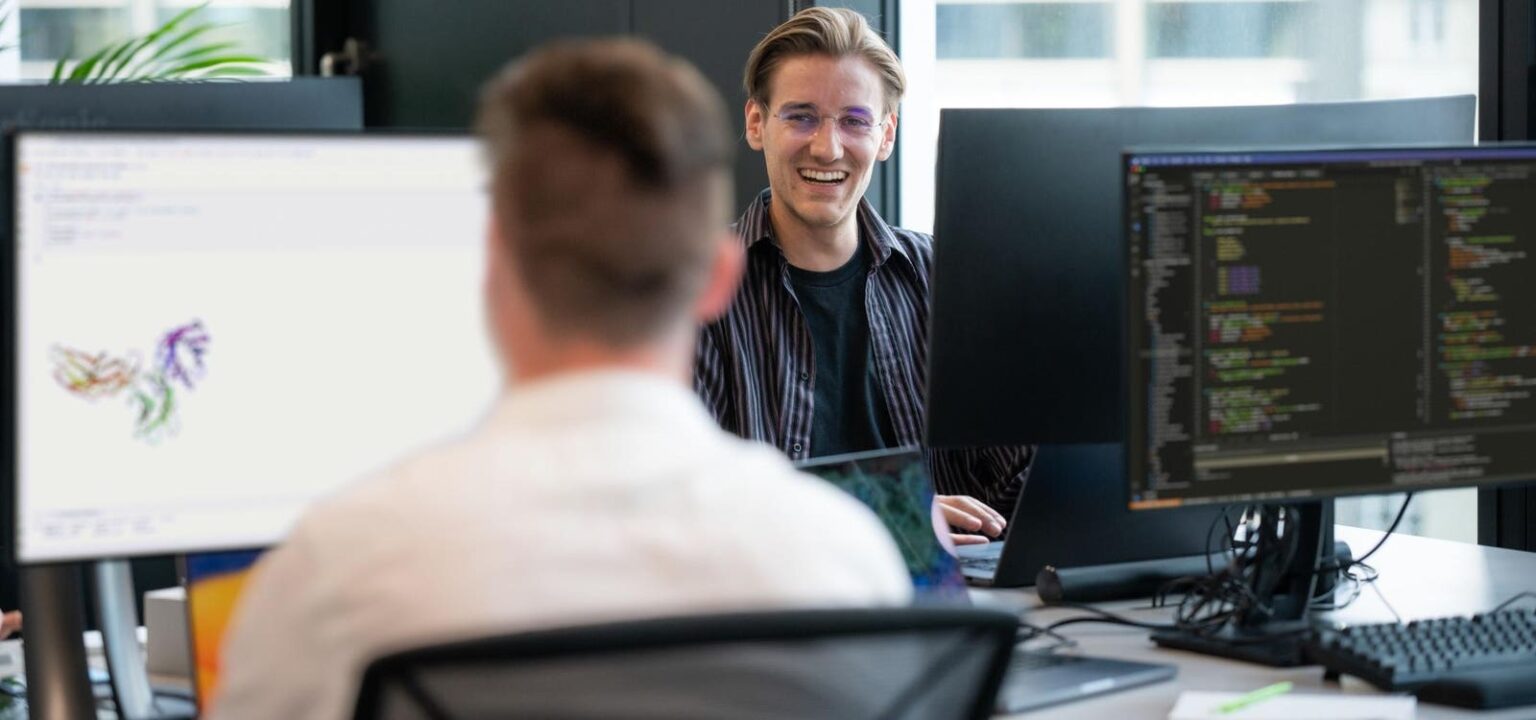What if scientists could create the building blocks of new medicines completely from scratch, targeting diseases with precisely designed cures? That is the vision of Latent Labs, a London- and San Francisco-based start-up, which is today announcing it has now raised $50 million of new funding.
The business was founded last year by CEO Dr Simon Kohl, who believes generative artificial intelligence (GenAI) can unlock incredible breakthroughs in drug discovery and development. “We think we can make existing drug development pipelines much quicker, but also open up completely new spaces,” Kohl says.
His pedigree is certainly impressive. Kohl previously worked as a senior research scientist on Google’s DeepMind AlphaFold2 project, which was last year awarded the Nobel Prize for chemistry. That initiative was all about predicting the structure of proteins, a goal that has eluded chemists for five decades; DeepMind’s solution paves the way for scientists to understand biological processes in far more detail, to develop new drugs, and even to design new proteins.
It is this latter goal that Latent Labs will focus on. Scientists using its AI will be able to create completely new therapeutic molecules – such as the antibodies and enzymes required to target particular diseases and conditions, often through medicines that are highly personalised to the patient.
“Our mission is to make biology programmable,” says Kohl. “The first step is to build foundational models for protein design – ultimately, we can move drug discovery fully into the computational realm where, without relying on a wet lab, you can push a button to make a drug that works.” That will shortcut a large chunk of the existing drug development process, he points out, accelerating the availability of new treatments.
It’s a tantalising prospect – both for the biotech and pharmaceutical industries, and the world. But Kohl insists this isn’t science fiction. “We think we’re at a point in time where generative modelling will allow us to go beyond the repertoire that nature has given us,” he says. “That has formed the basis of what was possible in drug discovery to date, but now we will be able to design proteins that aren’t found in nature.”
AI is already being used in drug development, but Latent Labs’ mission represents a step-change. Currently, AI is used to sift through vast catalogues of existing molecules in order to identify the most promising candidates for treating a particular disease; by contrast, Latent Labs, empowered by the advent of GenAI, proposes to design brand new molecules that are tailor-made to target the condition.
Kohl’s plan is to make the technology available to researchers in biotechnology and pharmaceutical companies, rather than to pursue drug discovery in-house. But Latent Labs may also choose to work on a project basis, taking on commissions from these companies for specific discovery and development goals.
The company is now at a point where it is ready to begin commercialising its technology and has begun having conversations with potential customers. “We’ve seen very good success with our own models, and we’re now seeing a lot of demand,” Kohl says. “There are a wide range of problems that people care about, and we expect demand across the board, from the very large pharma companies to the medium-sized and smaller biotechs.”
Investors, too, are excited by Latent Labs’ potential. Today’s fundraising includes a new $40 million Series A round that is co-led by Radical Ventures and Sofinnova Partners, with participation from Flying Fish, Isomer, and existing investors 8VC, Kindred Capital and Pillar VC. The company has also attracted angel investment from backers including Google chief scientist Jeff Dean, Transformer architecture inventor and Cohere founder Aidan Gomez, and ElevenLabs founder Mati Staniszewski. In addition, a pre-seed round completed last year raised $10 million.
“We’ve partnered with Latent Labs because we’re confident that this team will realize the therapeutic and commercial potential of ‘de novo’ protein design,” says Radical Ventures partner Aaron Rosenberg. “Such a capability has never before been possible, one which can benefit humanity in such a profound way.”
At Sofinnova Partners, partner Edward Kliphuis adds: “Latent Labs transforms biology from an observational science into an engineering craft, granting us precise control over life’s building blocks – in practical terms, it means crafting bespoke molecules that tackle challenges once thought insurmountable.”
Read the full article here











